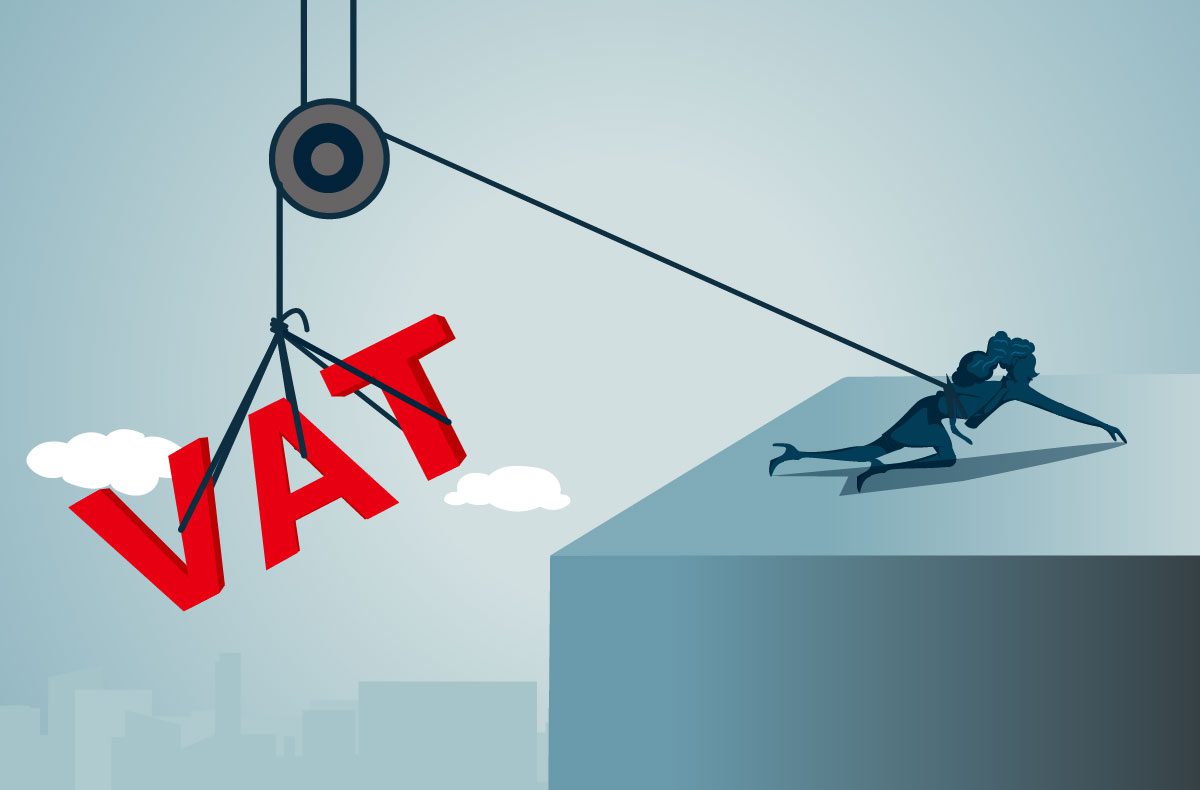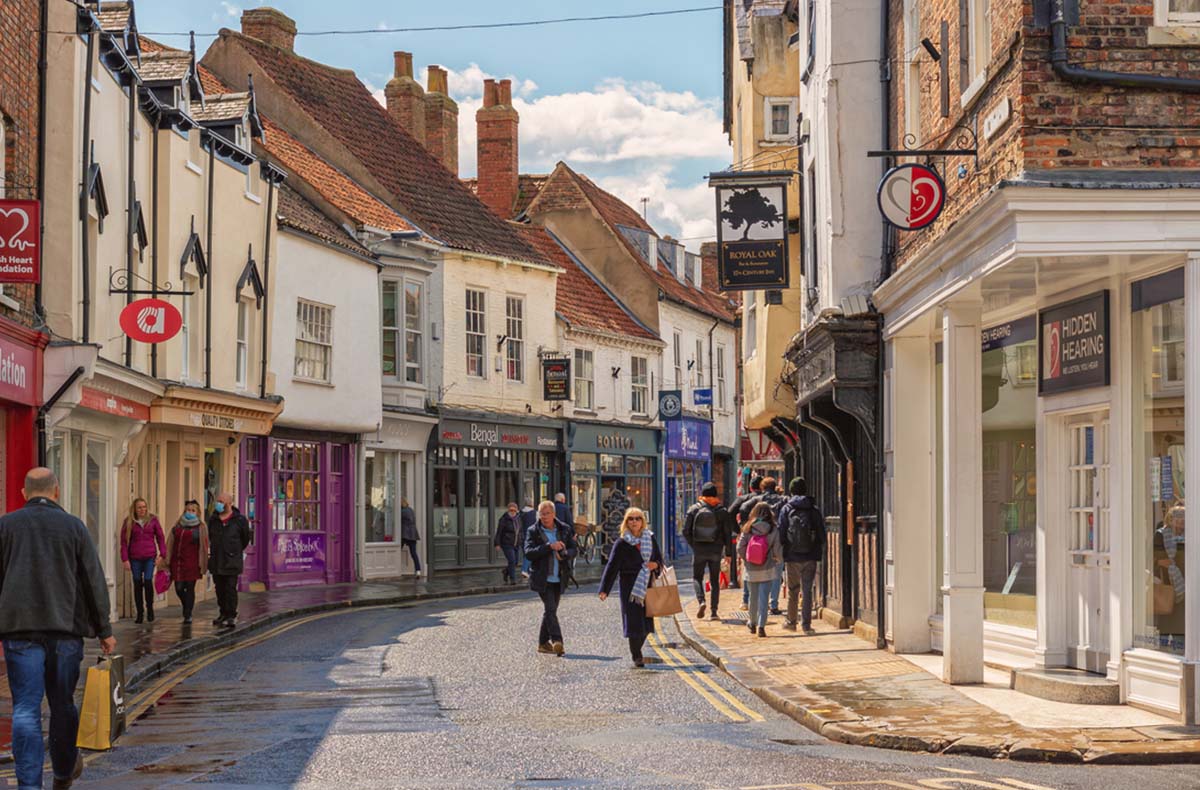
Illustration by Sarameeya Aree
VAT—or Value Added Tax—is the biggest handbrake on growth for a small business in the UK. It creates a terrible riddle for potential entrepreneurs. What gets smaller as it grows? A newly VAT-registered company’s bank balance.
As I work hard to grow my businesses, I find myself becoming ever more annoyed with the various obstacles to growth created by taxes and regulations. Please stay with me—this (I hope) is a bit more than a small business owner grumbling at how much they owe each quarter/year. I’m going to use one issue to exemplify my inner conflict: the VAT threshold of £85,000. We’re well over it, but I still have PTSD from when we exceeded it for the first time years ago.
This is not about rampant capitalism. As a child in the 1980s, I grew up in Rotherham, South Yorkshire. It was a time when all bar one constituency in the area (Sheffield, Barnsley and Doncaster) had a Labour MP. Local councils set themselves directly against the policies of Margaret Thatcher’s Conservative Party; there were high-profile miners’ strikes, and a literal red flag was flown on Sheffield Town Hall.
It was no surprise that the region came to be known as The Socialist Republic of South Yorkshire. Even as a primary school child (and despite the nickname having been given to her years previously), the idea of Thatcher being the mythical “Milk Snatcher” somehow filtered into my tiny little head. It made little sense, but there was a horrible woman who apparently wanted to take my morning milk and I was terrified of her.
My parents were active members of the Labour Party and while I was never outwardly political, I grew up with a set of left-leaning sensibilities, if not overt ideologies. Yet somehow, more than 30 years later and with a Tory government I have absolutely no time for in power, I find myself increasingly becoming the free-market capitalist a certain Milk Snatcher would have applauded…. and rewarded.
Cards on the table, I’m now 41 years old, and I have remained fairly apolitical. My husband is a Labour member, and I generally tune him out when he’s on one of his rants about Jenrik, Jenkyns, or Jenkinson, but I still consider myself to be left of center. A socialist with a lowercase “s,” if you will.
In my view, the need for VAT registration is the biggest challenge to growth for our smallest businesses. Not customer demands, not an increased workforce, not the supply chain. All these are important and inevitably need careful planning and management, but each can be managed gradually. No, as a micro business wanting to reach that next level, hitting the VAT threshold means more administration, more money leaving the business, and potentially less money in the bank.
This would be all well and good if it wasn’t so… well… instant. One day a business may be trotting along happily, turning over £84,999 in the previous 12 months, then it has a good day through the till, and BANG, HMRC is knocking at its door, wanting 20% of every penny it takes. It’s the rolling 12 months that get you. All this considered, the options are as follows:
- a) Pay up, schmuck!
- b) Don’t go above the threshold…
So, let’s look at the first option. Let’s say for argument’s sake that even if the initial rebate (from money previously spent on VAT-able assets) covers half of the initial return, then you’re still looking at a substantial pay-out to Mr or Mrs HMRC in three or less months’ time. Despite turning over more, profits will be lower and if things are already tight, then a business could well find itself in trouble—all due to growth!
“Pass it [the 20%] on to the end-consumer” is the oft-argued response, and indeed is the intention of VAT in the first place. All well and good if you’re B2C and household budgets weren’t so tight. Remaining competitive means remaining in business.
That brings me to option two, and it’s something that some small businesses (particularly those where an all-important household income is impacted) choose to do. As an example (and albeit based on anecdotal evidence) some hospitality businesses such as cafes, when faced with an impending encroachment of the threshold, simply choose to close for a week to keep takings down. Bills are still being paid, often staff too, but said businesses cannot afford to make any further sales.
Indeed, I’m also aware of businesses that will not declare a level of cash takings in order to stay beneath that 85k. Now tell me that VAT isn’t an impediment to growth.
One ‘solution’ is for a business to absolutely smash through the threshold so that the 20% doesn’t damage the bottom line. This is far easier said than done. Swift growth can account for this, but not all businesses find themselves with that potential or available investment.
I will conclude my rant with specific rancor regarding the freeze on the threshold. How it’s remained the same since 2017 and will do for another three years. How in real terms, it should be £103k if we take inflation into consideration. How the squeeze on costs means that businesses have had to charge more, but the threshold hasn’t changed one iota for six years.
All this goes to show just how freezing the current threshold may be focused on gradually moving us towards the lower thresholds of other countries (the UK’s 85k is currently the highest in the world.) This isn’t necessarily unreasonable in itself, but to employ a much-despised cliché, we are where we are. That is to say, thousands of businesses have been working to this threshold and simply cannot afford to exceed it but will have to when inflation inevitably pushes them over.
Current policy is far too rigid, and there needs to be re-evaluation. Of course, raising the threshold would have an impact on government coffers and may negatively impact overall economic growth as many businesses will deregister when they go back below. But at a time when there is more than one obstacle to SME survivability, this may stimulate expansion for the estimated tens of thousands of businesses massaging their revenue to stay away from the cliff edge. They will be free to spread those wings, take more—and pay more.
Will this balance the VAT losses in itself? Most certainly not, but there are plenty of recommendations from people cleverer than I on the ways to manage the threshold to help businesses grow. Suggestions include different rates of VAT and my personal preference, an easing in mechanism with rebates depending on how far above the threshold a business goes.
Looking back at Thatcherism as a center-left entrepreneur with misty eyes may be misplaced, but her adoration for small business enterprise is irrefutable. So, I say this with pleading in my eyes, dear Labour Party, dear Conservative Party. When you’re writing your 2024 manifestos, please include something for those small businesses who want to grow but because of that rigid threshold, right now cannot.
In the meantime, excuse me while I go hide this article from my dyed-in-the-wool anti-Thatcher parents.



